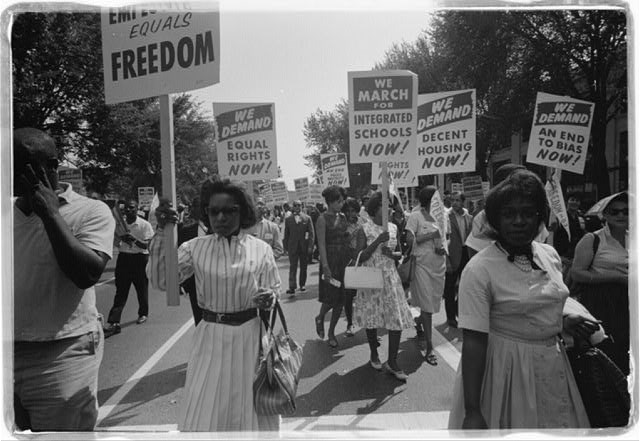
Warren K. Leffler, photographer. Library of Congress
Overview
Civil rights are those rights guaranteed to individuals as citizens of a nation, irrespective of gender, race and ethnicity, physical/mental ability, or sexual preference. This roots the examination of civil rights in the process of people exercising those rights within a societal framework and the resistance to those individuals.
The National Capital Region's Civil Rights program supports cross-disciplinary studies about the history of all Americans and their struggles for civil rights and equity in order to better preserve, restore, and share their stories at national park sites across the region.
The civil rights movement is the enduring fight for human rights. For African-Americans, the civil rights movement began at the start of chattel enslavement in the United States, and includes resistance to slavery, the Reconstruction era, the civil rights movement of the twentieth century and continues to the present day. Throughout American history, countless African Americans, both free and enslaved, and numerous other groups have strived to obtain the full and equal "unalienable Rights" upon which this nation was founded.
Contact
Please contact Joshua Torres, Program Manager for History and Culture Services for more information. If you need assistance from Resource Stewardship and Science (RESS), you may submit a Solution for Technical Assistance Requests (STAR) request online (NPS Only).
Links
- NPS Civil Rights Subject Site
- National Historic Landmarks Civil Rights Framework
- NPS National Underground Railroad Network to Freedom Site
- Telling All Americans' Stories
- Asian American and Pacific Islander Heritage
- American Latino Heritage
- Women's History
- Legacies of Enslavement and Race in NCA Parks Resource (NPS Only)
Source: NPS DataStore Saved Search 4855. To search for additional information, visit the NPS DataStore.
Last updated: April 1, 2025
